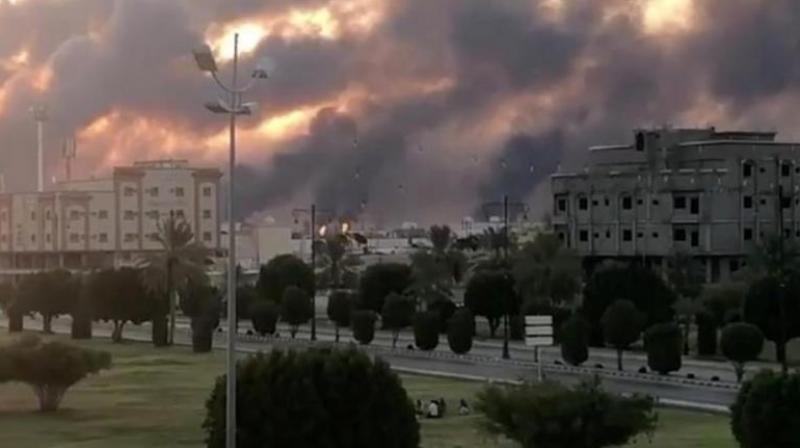Oilfield attacks are a warning to Saudis over Yemen policy

It’s unclear whether last Saturday’s devastating attacks on key Saudi Aramco facilities will serve as a sobering reminder to the kingdom’s ruling family of the
price it must pay for its appallingly misguided military mission in Yemen.
The latter nation’s Houthi militia immediately claimed responsibility, but Mike Pompeo, the US secretary of state, was equally quick to lay the blame squarely on Iran. The following day, Donald Trump tweeted that American forces were “locked and loaded”, awaiting “verification” from Riyadh.
The implication was that the House of Saud just had to give the word for its saviour-in-chief to launch retaliatory strikes, presumably against Iran.
Were that threat to be carried out, there’s a reasonable chance it would unleash the worst war the Middle East has witnessed in recent decades, in a region already convulsed in seemingly intractable conflicts.
The sites of the Saudi conflagrations are considerably closer to Iraq and Iran than to Yemen, but Pompeo is reported to have informed Iraq’s Prime Minister that the attacks did not emanate from Iraqi territory. And even if Iran was behind the drones and/or missiles that struck the Aramco sites, what are the chances it would launch them from its own terrain?
Meanwhile, Riyadh is being circumspect in its allegations, claiming that the weapons were of Iranian origin without directly blaming Tehran.
It’s hard to believe that the Saudi crown prince, Mohammad bin Salman (MBS), who was instrumental in unleashing fire and fury against Yemen, would
personally be averse to an American attack on Iran, regardless of the consequences.
By arrangement with Dawn

